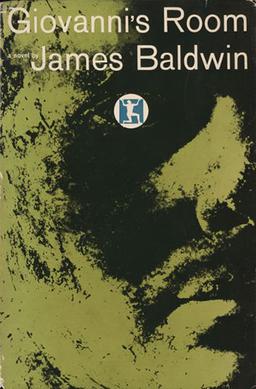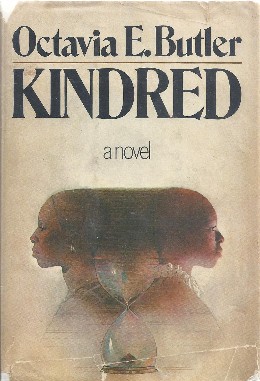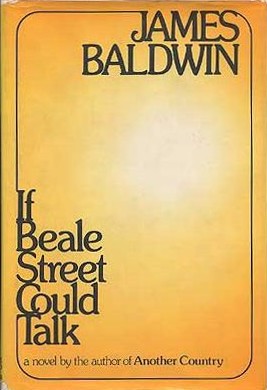
Native Son (1940) is a novel written by the American author Richard Wright. It tells the story of 20-year-old Bigger Thomas, a black youth living in utter poverty in a poor area on Chicago's South Side in the 1930s. Thomas accidentally kills a white woman at a time when racism is at its peak and he pays the price for it.
Miscegenation is a pejorative term for a marriage or admixture between people who are members of different races.

William Clark Styron Jr. was an American novelist and essayist who won major literary awards for his work.

James Arthur Baldwin was an African-American writer and civil rights activist who garnered acclaim for his essays, novels, plays, and poems. His 1953 novel Go Tell It on the Mountain has been ranked by Time magazine as one of the top 100 English-language novels. His 1955 essay collection Notes of a Native Son helped establish his reputation as a voice for human equality. Baldwin was an influential public figure and orator, especially during the civil rights movement in the United States.

Countee Cullen was an American poet, novelist, children's writer, and playwright, particularly well known during the Harlem Renaissance.

Go Tell It on the Mountain is a 1953 semi-autobiographical novel by James Baldwin. It tells the story of John Grimes, an intelligent teenager in 1930s Harlem, and his relationship with his family and his church. The novel also reveals the back stories of John's mother, his biological father, and his violent, fanatically religious stepfather, Gabriel Grimes. The novel focuses on the role of the Pentecostal Church in the lives of African Americans, both as a negative source of repression and moral hypocrisy and a positive source of inspiration and community.

Giovanni's Room is a 1956 novel by James Baldwin. The book concerns the events in the life of an American man living in Paris and his feelings and frustrations with his relationships with other men in his life, particularly an Italian bartender named Giovanni whom he meets at a Parisian gay bar. While he deals with his difficulties with men, he is engaged to an American woman who is travelling in Spain.

Gay literature is a collective term for literature produced by or for the gay community which involves characters, plot lines, and/or themes portraying male homosexual behavior.

Beauford Delaney was an American modernist painter. He is remembered for his work with the Harlem Renaissance in the 1930s and 1940s, as well as his later works in abstract expressionism following his move to Paris in the 1950s. Beauford's younger brother, Joseph, was also a noted painter.

Kindred (1979) is a novel by American writer Octavia E. Butler that incorporates time travel and is modeled on slave narratives. Widely popular, it has frequently been chosen as a text by community-wide reading programs and book organizations, and for high school and college courses.

If Beale Street Could Talk is a 1974 novel by American writer James Baldwin. His fifth novel, it is a love story set in Harlem in the early 1970s. The title is a reference to the 1916 W.C. Handy blues song "Beale Street Blues", named after Beale Street in Downtown Memphis, Tennessee.

Going to Meet the Man, published in 1965, is a collection of eight short stories by American writer James Baldwin. The book, dedicated "for Beauford Delaney", covers many topics related to anti-Black racism in American society, as well as African-American–Jewish relations, childhood, the creative process, criminal justice, drug addiction, family relationships, lynching, sexuality, and white supremacy.

Just Above My Head is James Baldwin's sixth and last novel, first published in 1979. He wrote it in his house in Saint-Paul-de-Vence, France.

Tell Me How Long the Train's Been Gone is James Baldwin's fourth novel, first published in 1968.

This is a list of important events relating to the LGBT community from 1801 to 1900. The earliest published studies of lesbian activity were written in the early 19th century.

Soul on Ice is a memoir and collection of essays by Eldridge Cleaver. Originally written in Folsom State Prison in 1965, and published three years later in 1968, it is Cleaver's best known writing and remains a seminal work in African-American literature. The treatises were first printed in the nationally-circulated monthly Ramparts and became widely read for their illustration and commentary on Black America. Throughout his narrative, Cleaver describes not only his transformation from a marijuana dealer and serial rapist into a convinced Malcolm X adherent and Marxist revolutionary, but also his analogous relationship to the politics of America.
Racism is a concern for many in the Western lesbian, gay, bisexual and transgender (LGBTQ) communities, with members of racial, ethnic, and national minorities reporting having faced discrimination from other LGBT people.
Roderick Ferguson is Professor of Women's, Gender, and Sexuality Studies and American Studies at Yale University. He was previously professor of African American and Gender and Women's Studies in the African American Studies Department at the University of Illinois, Chicago. His scholarship includes work on African-American literature, queer theory and queer studies, classical and contemporary social theory, African-American intellectual history, sociology of race and ethnic relations, and black cultural theory. Among his contributions to queer theory, Ferguson is credited with coining the term Queer of Color Critique, which he defines as "...interrogat[ion] of social formations as the intersections of race, gender, sexuality, and class, with particular interest in how those formations correspond with and diverge from nationalist ideals and practices. Queer of color analysis is a heterogeneous enterprise made up of women of color feminism, materialist analysis, poststructuralist theory, and queer critique." Ferguson is also known for his critique of the modern university and the corporatization of higher education.

Not Gay: Sex Between Straight White Men is a 2015 book by Jane Ward, in which the author details the phenomenon of straight-identifying white men seeking out sex with other straight-identifying men despite not identifying as gay, bisexual, or bi-curious.

Concepts of race and sexuality have interacted in various ways in different historical contexts. While partially based on physical similarities within groups, race is understood by scientists to be a social construct rather than a biological reality. Human sexuality involves biological, erotic, physical, emotional, social, or spiritual feelings and behaviors.
















